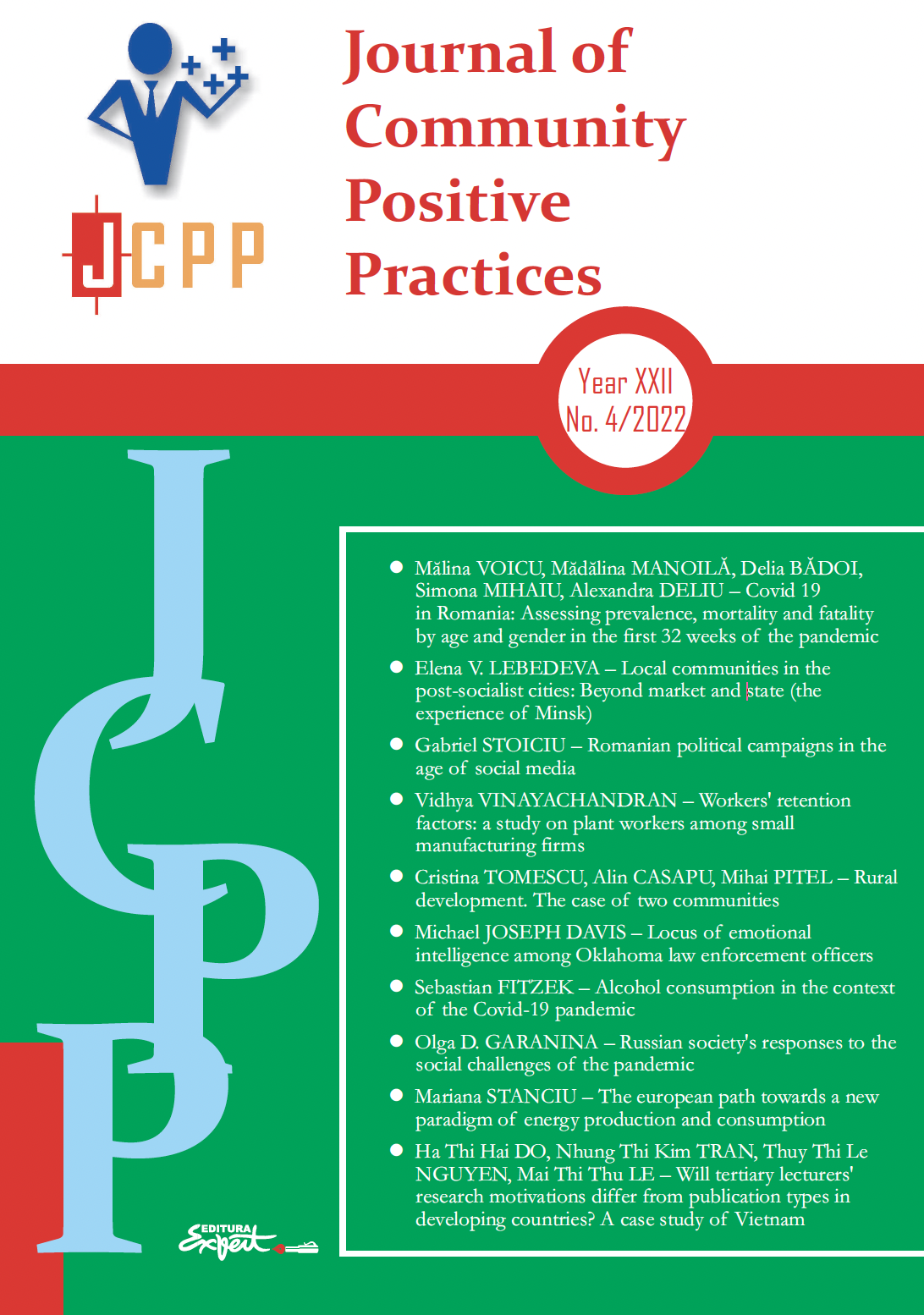Local communities in the post-socialist cities: beyond market and state (the experience of Minsk)
Local communities in the post-socialist cities: beyond market and state (the experience of Minsk)
Author(s): Elena V. LebedevaSubject(s): Governance, Public Administration, Government/Political systems, Social development, Rural and urban sociology, Transformation Period (1990 - 2010)
Published by: Asociatia pentru Dezvoltare si promovare socio-economica Catalactica
Keywords: post-socialist city; urban participation; urban common; local government; local communities; neighborhood;
Summary/Abstract: The development of local communities provides an opportunity for citizens to realize they right to the urban participation and self-government. The most effective mechanism for activating local communities is they involvement into urban common. Urban common practices allow citizens jointly feel responsibility for restoring their territories, formulate mutually beneficial solutions and reduce the possibility of conflicts. Data shows that at least one-third residents of Post-Socialist cities (on the example of Minsk) are still excluded from urban participation. Among all factors influencing the urban common practices, the most significant are the level of trust between the state and civil society, the knowledge about official ways of urban participation and the nature of neighborhood communication. Overcoming communication gaps between neighbors supported by educational work among local leaders could improve significantly the level of civil activity and urban participation at Post-Socialist cities.
Journal: Jurnalul Practicilor Comunitare Pozitive
- Issue Year: XXII/2022
- Issue No: 4
- Page Range: 21-34
- Page Count: 14
- Language: English

